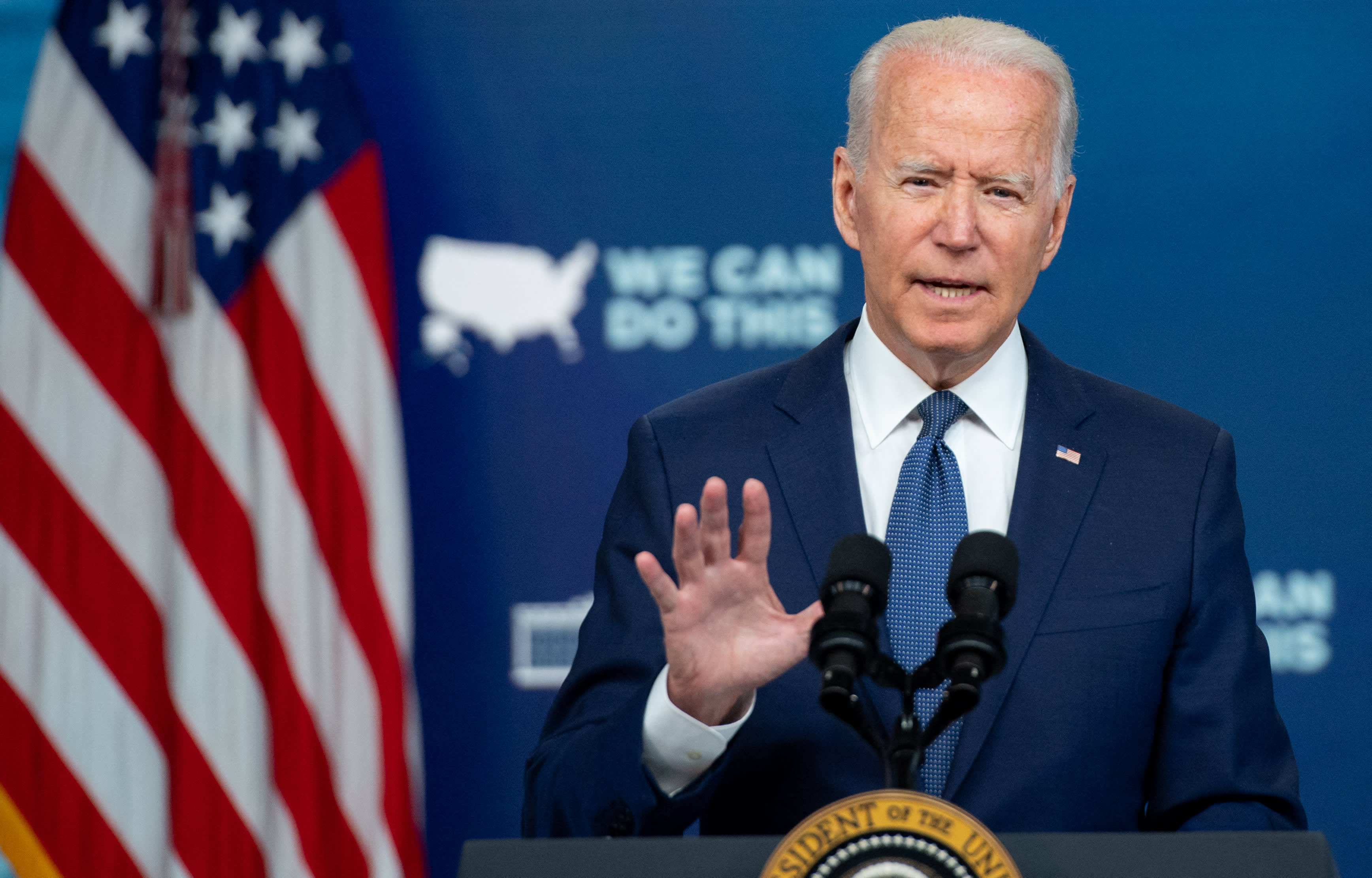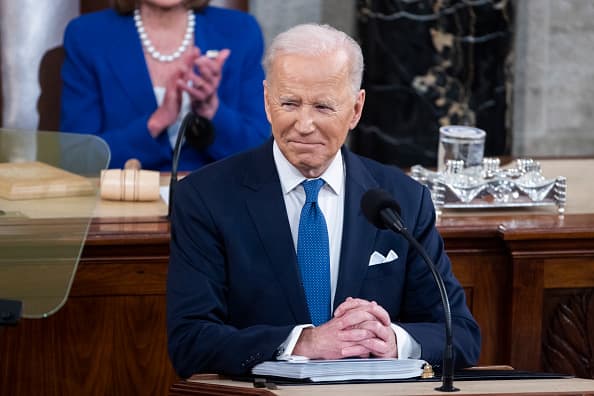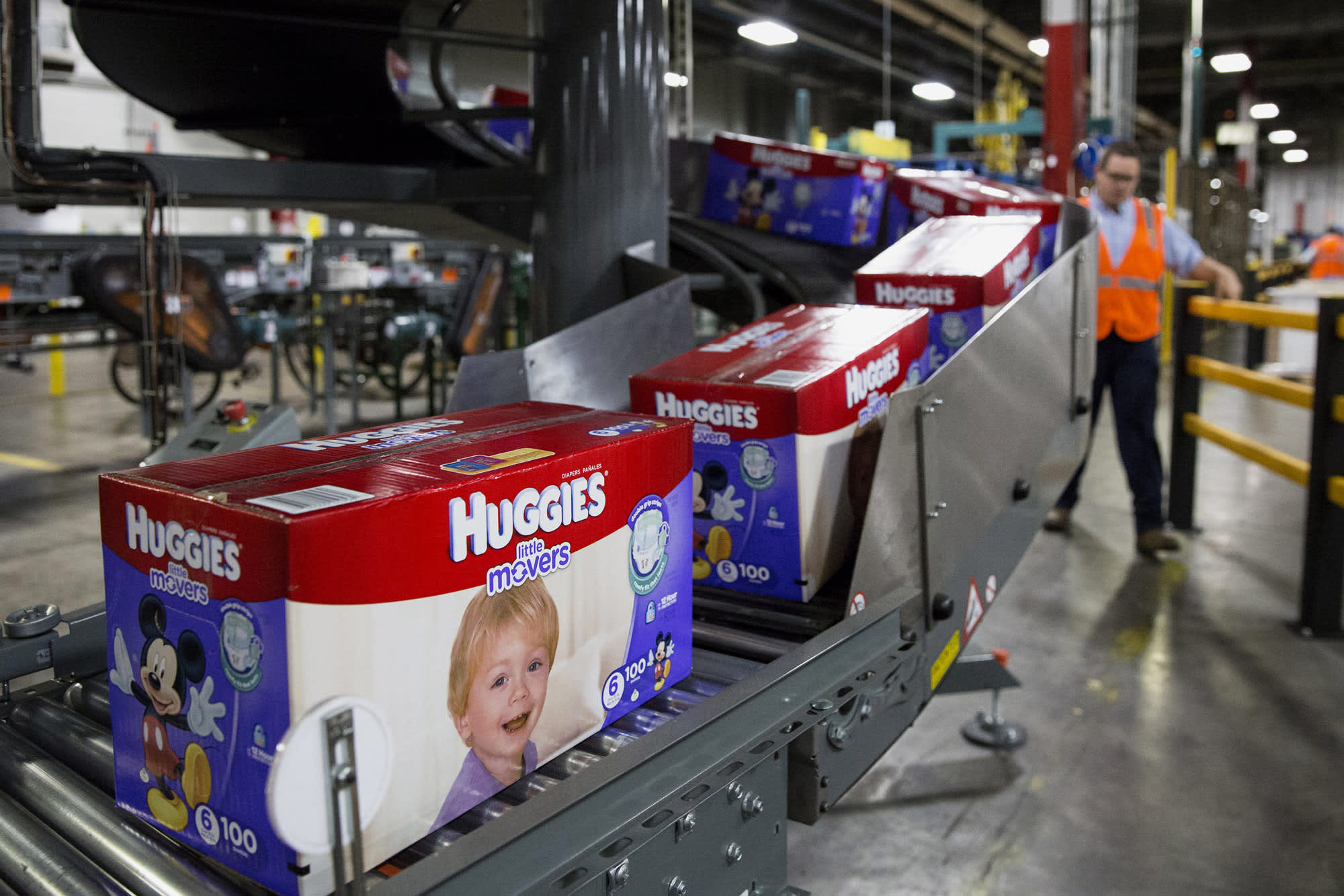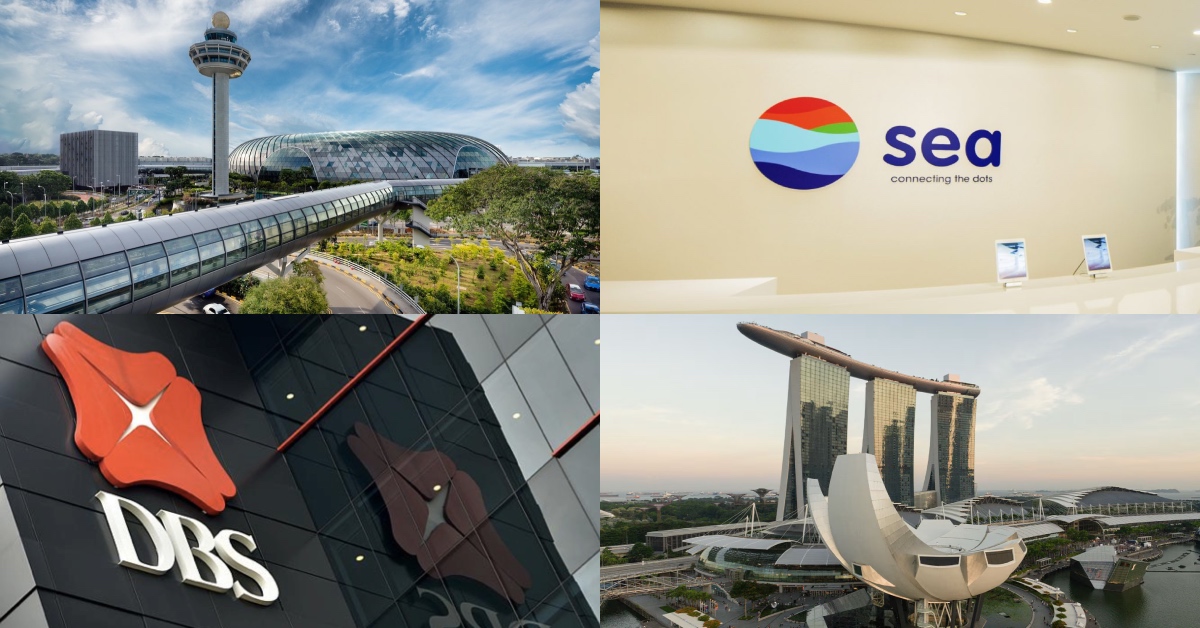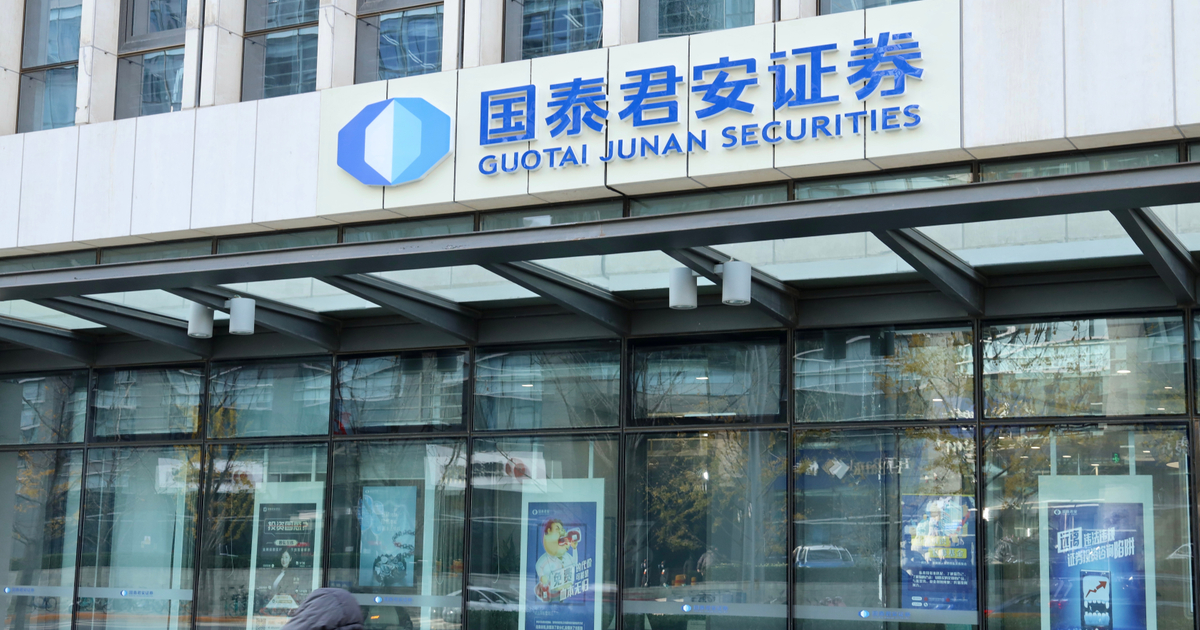Target shares surge as retailer says it can keep growth going beyond the pandemic
The discounter will also hold an in-person investor day Tuesday in New York City.
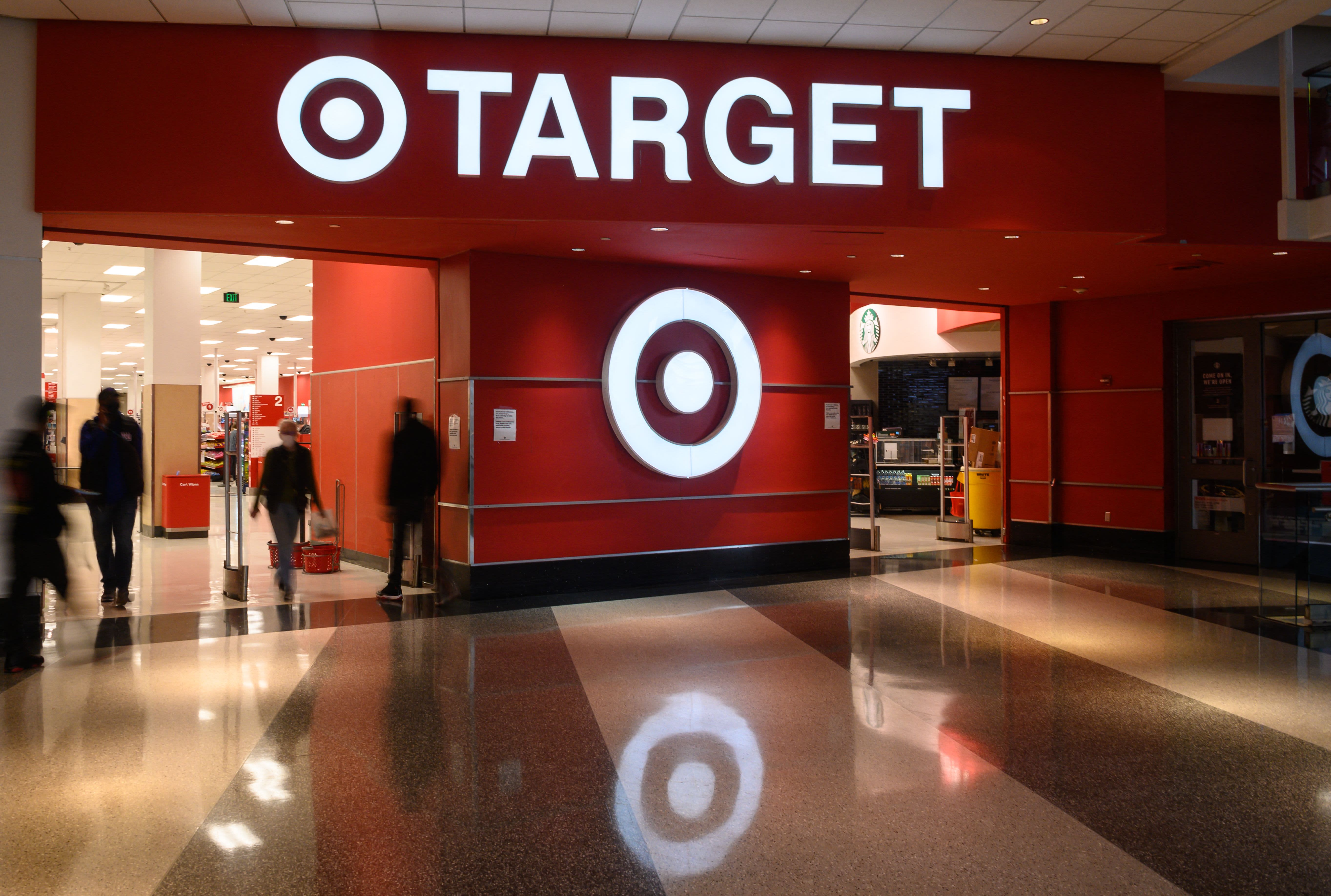
Target shares surged Tuesday after the retailer reported 9% sales growth in the fiscal fourth quarter, despite supply chain pressures, and said it's poised to keep that momentum going.
The discounter said it expects sales to rise, even as shoppers see prices of food, fuel and other goods creep higher. It forecast revenue growth for the coming year in the low to mid single digits and projected adjusted earnings per share to rise by high single digits. Those are above analysts' expectations, according to Refinitiv.
The company's shares were up 13% in early trading.
The big-box retailer will hold its first in-person investor day in New York City since the start of the pandemic, a two-year span that has turbocharged Target's stock price and revenue. Shares of the company have soared 84% since mid-March 2020, when Covid-19 was declared a pandemic. Its annual revenue has reached $106 billion, up nearly 36% over the past two years.
Investors will listen for how Target will compete for consumers' money and time, as people juggle more spending priorities in a reopening world and feel the sting of inflation.
In a Tuesday interview on CNBC's "Squawk Box," CEO Brian Cornell said the average Target store has added $15 million in sales over the last couple of years. Along with selling goods, those stores double as fulfillment centers where almost all of the company's online orders are packed and shipped or prepared for a customer to pick up in the parking lot.
"We're getting more efficient, more productive — and that's flowing through to the bottom line," he said.
Target's purchases are reflecting shoppers' changing mindsets, too. Cornell said swimsuits and suitcases are among the recent big sellers. He said the retailer is seeing "an incredibly resilient American consumer," despite the push and pull of many factors.
"There are still concerns about Covid and Americans want to get back to some sense of normal life," he said. "They're watching and looking for value right now, but they're also looking for newness and experience. We see it all the time in our business. There's certainly a consumer who's worried about inflation, but they've got a pretty healthy balance sheet right now."
Here's what Target reported for the fiscal fourth quarter ended Jan. 29, compared with Refinitiv consensus estimates:
Earnings per share: $3.19 adjusted vs. $2.86, expectedRevenue: $31 billion vs. $31.39 billion expectedNet income rose about 12% to $1.54 billion, or $3.21 per share, from $1.38 billion, or $2.73 per share, a year earlier. Excluding items, the retailer earned $3.19 per share, higher than the $2.86 per share expected by analysts surveyed by Refinitiv.
Total revenue increased to $31 billion from the same period a year ago, slightly below analysts' expectations of $31.39 billion.
Target faces challenging comparisons due to the pandemic. In the holiday quarter, for instance, it went up against a year-ago period when Americans had extra dollars from stimulus checks to spend on holiday gifts and some chose to consolidate shopping trips to reduce risk.
Comparable sales, a key retail metric that tracks sales online and at stores open at least a year, increased 8.9% in the fourth quarter. That's lower than the 10.5% gain that analysts expected, according to StreetAccount.
Customers made more trips to Target's stores and website in the fourth quarter compared with a year ago, the company said. Combined traffic online and in stores increased by 8.1%, but the average transaction amount rose less than 1% compared with a year earlier.
Target's online services — which include Drive Up, its curbside pickup option; Order Pickup, its in-store retrieval of online purchases; and Shipt, its home delivery service — have also been a big opportunity for the retailer. Sales through those same-day services grew by 45% in the fiscal year. That's after 235% growth in 2020.
Those options gained a following as safe, contactless ways to shop. Now, the company is adding more perks that may appeal as people juggle fuller social calendars again. Starting in the fall, customers can make returns or pick up a Starbucks coffee without leaving the car at select stores.
The company said it can keep profits high, despite pressures across its business.
In the fourth quarter, Target said supply chain costs rose as it had a larger workforce and higher wages at its distribution centers and paid more for freight and merchandise. As the company geared up for the start of the holiday quarter, Target had more than $2 billion higher inventory than the previous year to make sure it had plenty to put on store shelves.
Labor costs are rising, too. Target said Monday it will spend $300 million more in the year ahead on wages and health-care benefits. It's hiking pay as retailers compete for employees in a tight market. It said starting wages will range from $15 to $25 for hourly employees, based on role and local market. About 20% more employees will qualify for medical benefits as it drops the minimum average hours a week from 30 hours to 25 hours, the company said.
Target has worked toward a higher minimum wage over the past five years, as lawmakers in some cities and states pushed to require more pay. Starting in July, hourly workers began to make at least $15 an hour.
In fiscal 2023 and beyond, Target said it anticipates annual revenue growth in the mid single digits and adjusted earnings per share in the high single digits. It said it plans to spend $4 billion to $5 billion on capital expenditures each year.

 JimMin
JimMin 










